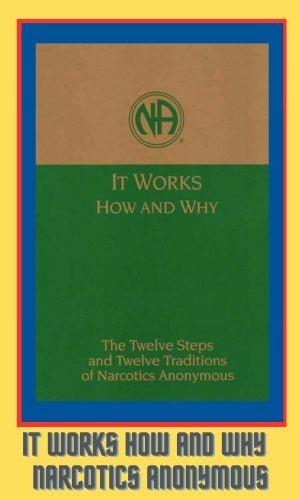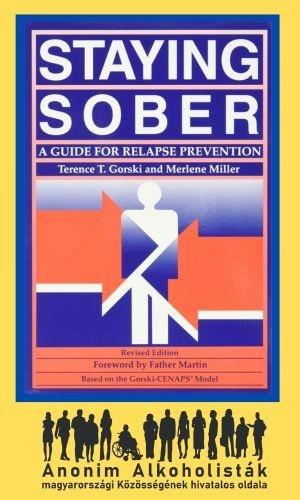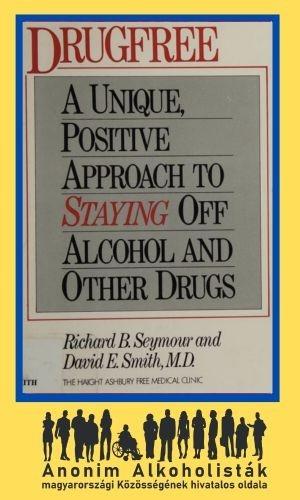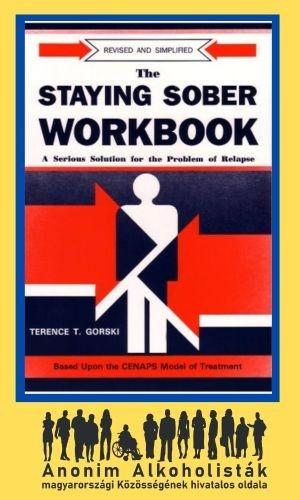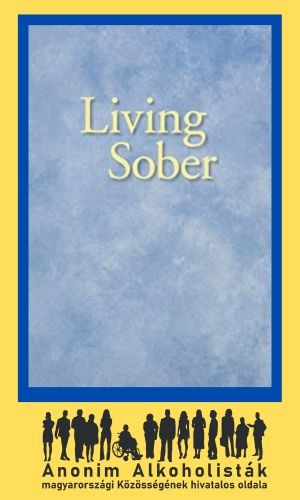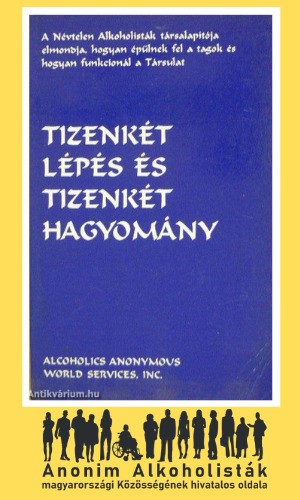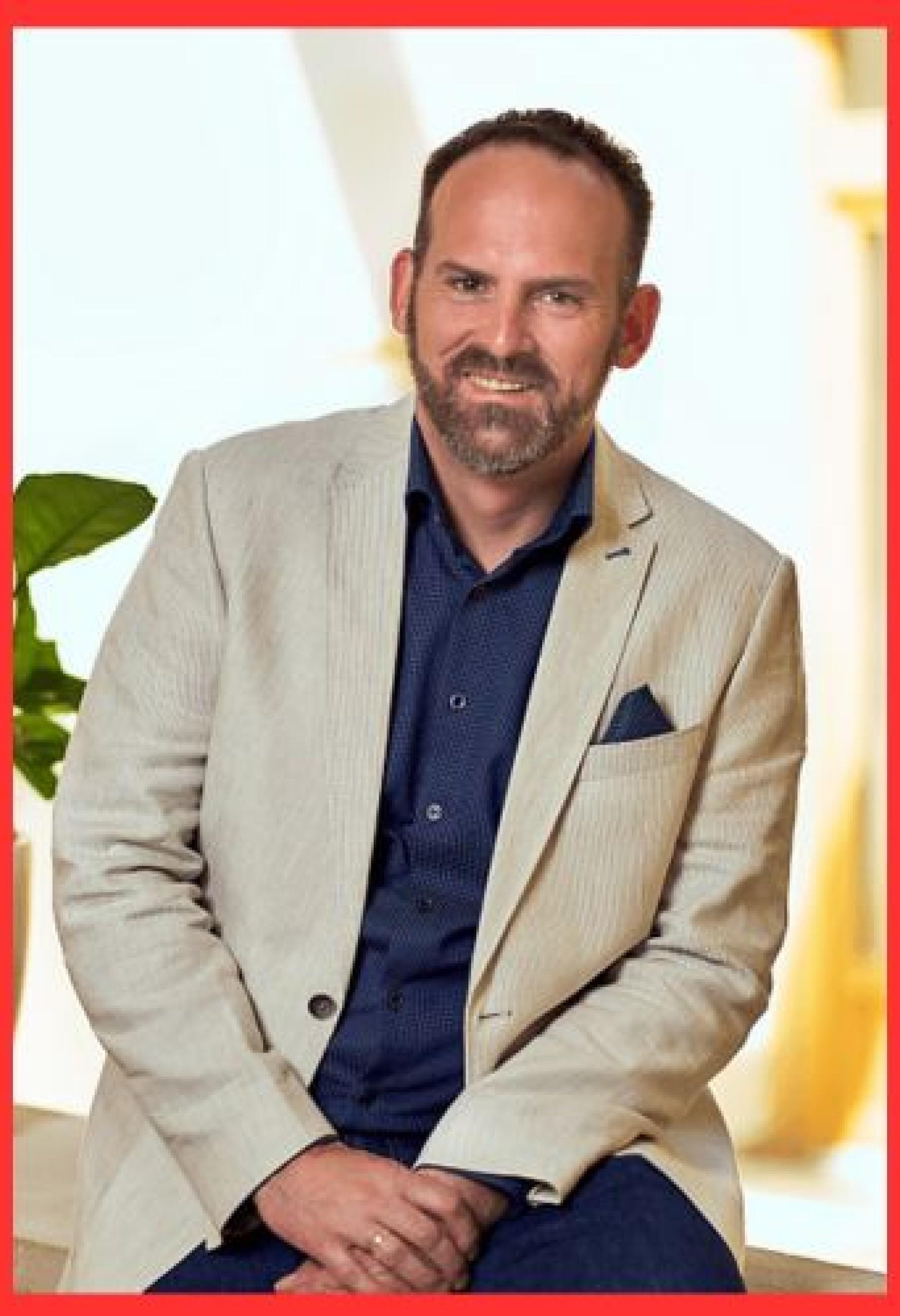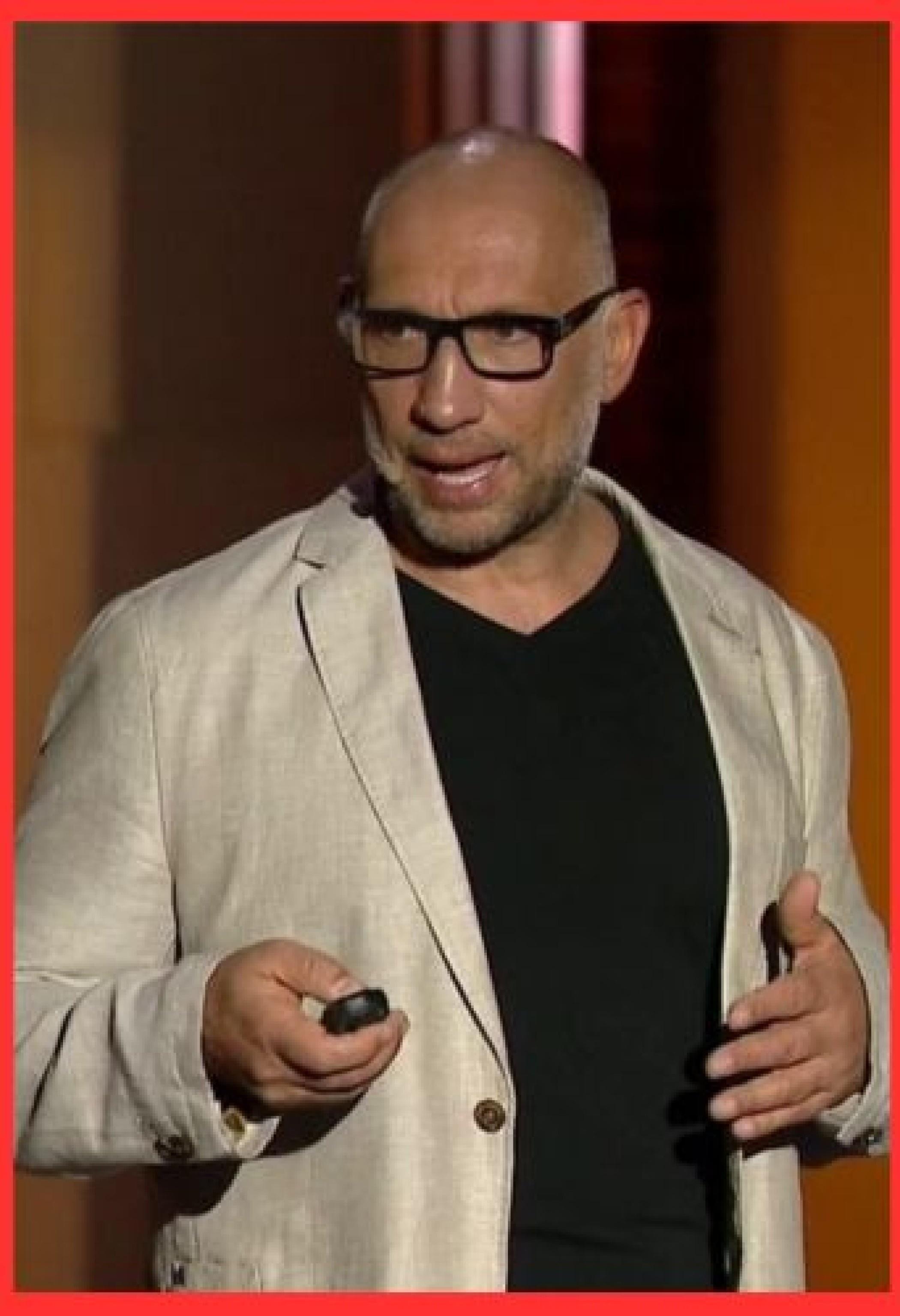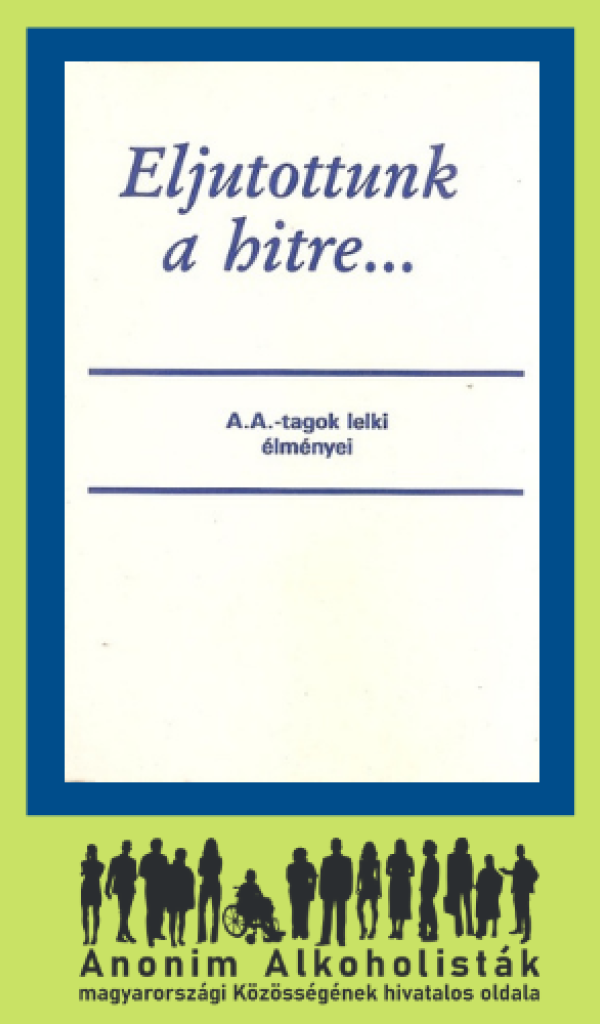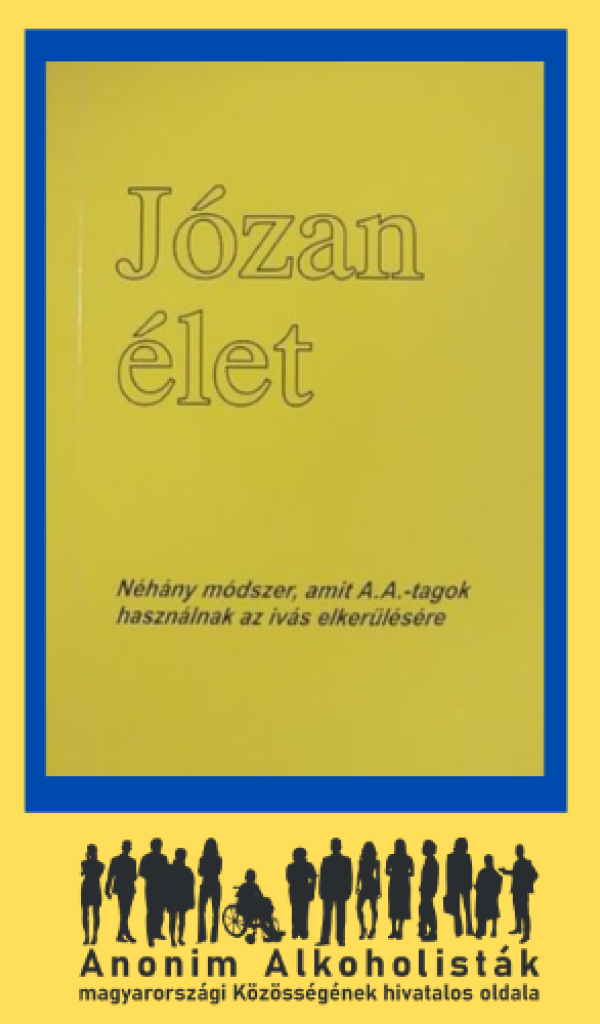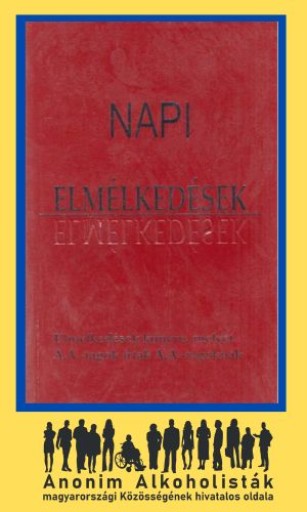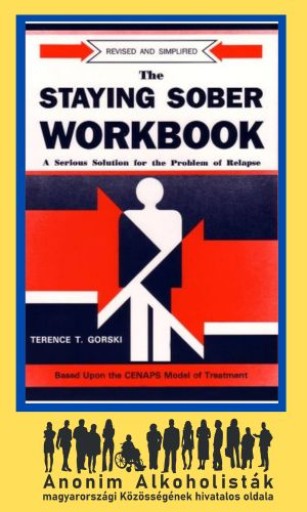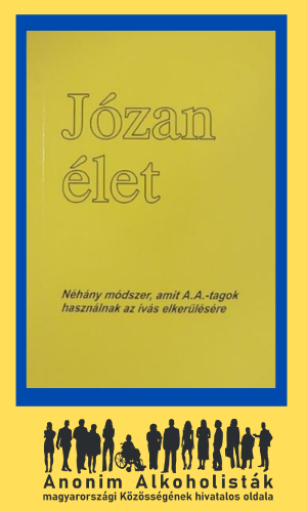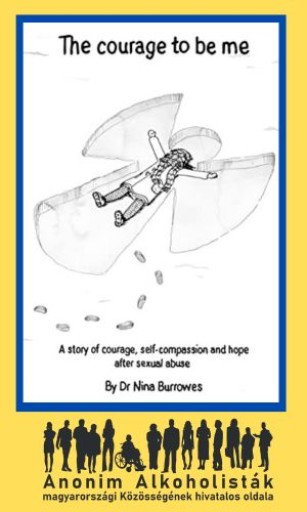Step 1
We have admitted that we are powerless over our addiction to sex and love - that our lives have become out of control.
The term "helpless" raises a number of related ideas. First, it means that whatever power/force usually makes the rational decisions about our sexual and emotional behaviour, we do not have that power/force. We have become slaves to sex and love (perceived as emotional addictions and romantic games). The fact that we have become prisoners of these things shows that it is very important for us to make the "gains" we feel we need in our sexual and emotional patterns.
When we have been enchanted with sexuality, sometimes we have simply wanted to forget the obligations and responsibilities of life. At other times, romantic and sexual adventures were used to cover the burden of disappointment and guilt. Sometimes we just wanted to fill our inner emptiness with another person. Still other times, we may have wanted to hide our fear of commitment by believing in a new kind of morality, "sex without guilt", "free love" or "recreational sexuality". But we have all used our sexual energy and emotional investment to reduce pain or increase pleasure. These overwhelming urges drove our sexual and emotional motivations and actions.
At certain times in our lives, our behaviour has taken on the compulsive symptoms of addiction. These episodes, which were rare at first, became monthly and then weekly. They have happened to us at inopportune moments and have disrupted our work or family commitments. Occasional daydreaming has become a permanent obsession, destroying our ability to concentrate on the important things we do every day. Satisfaction with activities at work, with friends or in society has slowly disappeared, and we have found that our time and thoughts are increasingly filled with daydreaming about one person or another. The occasional release of sexual tension through masturbation became a necessity, for which the conditions had to be created. We have lost control over the frequency, quantity (or both) of when we seek romantic or sexual "solutions" to life's difficulties.
Some of us have been involved in sexual and romantic encounters and relationships with amazing intensity, almost merging with our partner or lover. These experiences became more and more compulsive, taking us along with them, which was inspiring at first, but then we wanted them less and less. Our immersion in sexual and romantic relationships has dragged us down with irresistible force, turning our sexual and emotional needs into a real, undeniable craving, a permanent bondage.
Originally we wanted a harmless escape from the tensions and responsibilities of life, a release from the guilt of the past and the frustrations of the present, but we have come to a total self-abandonment. The 'brave new world' of morality, where 'anything goes' because 'nothing matters', has taken its revenge and we are now grasping for some residual meaning or reality in our lives. Compulsiveness and obsession have become our new masters, and this has led to a situation where we no longer control our sexual and emotional lives, where we can no longer control ourselves. Whether we admitted it or not, we lost control.
From the basic "what does it matter, it all fits" point of view, lack of control doesn't seem like such a bad thing. Often it is the very addiction itself that seduces us and convinces us that this is what we wanted. Many of us have become so desensitised that only the emotional and physical intensity of a sexual or romantic 'explosion' can excite our increasingly empty and burnt-out beings. Just as the pain of the electric stamp on the exhausted and stunned cattle, we are pushed by another "dose" into the temporary illusion that we are alive at all. It was as if a voice in our heads kept repeating "if I get more and more of it, maybe everything will fall into place".
If our addiction took the form of being dependent on one person, this lack of control didn't always seem so bad. We may have thought that our bondage was a "match made in heaven", and that because we sacrifice everything for this love, we will surely be rewarded for our selflessness. Alone, life was grey and empty; but if we could become more and more a part of our love, if we could become ONE with it, then everything became all right.
At the same time, an uncertain but insistent voice from deep within us told us that this was not good. Even though our addiction was hidden behind cultural and rational masks, it seemed impossible - apart from the possibility of suicide - to silence the inner voice that kept whispering in our ears that we were helplessly letting life's possibilities, the chances of wholeness and growth, pass us by. The guilt of missed opportunities, of our past actions and passions, gave way to a much deeper and more pervasive guilt: the feeling that we had not lived our lives, that we had turned our backs on the possibility of a meaningful life.
We tried not to see these basic shortcomings in ourselves. But whatever we did, they kept coming up again and again. Even the fire of addictive passion could not extinguish them. Nor did the addiction itself automatically deliver the sexual or emotional gains that had previously been reliable and fully immersive. Slowly it became clear to us that our addiction to sex and love was completely pointless and futile.
Whatever the pattern was: erratic promiscuity, extreme emotional dependence on one person, or any combination of these. At the right time, we have all experienced real desperation. We were terrified that if we continued to act out our addictions, if we allowed them to control us, we would lose our sanity and fall over the edge of a precipice beyond which any stability or meaning in life would forever be beyond our reach. This vision was even more terrifying for us than the thought of physical death. The loss of the soul is all the more frightening the more the body continues to exist without spiritual nourishment from within, and is only caught in the web of those terrible impulses which have now taken full possession of it.
For some of us, in our terror that addiction to sex and love will completely disrupt our lives, we have come to the point where we are willing to surrender unconditionally. We decided that we MUST stop. Now we are confronted with the other side of inertia: the paradox that admitting the inability to control is the beginning of recovery.
Most of us have tried many strategies to control our behaviour in order to somehow harmonise our dependent existence with our 'other' life as a member of society. We broke up with one lover only to "fall in love" with another, sometimes within a very short time. We stopped masturbating, or even started masturbating instead of having sex with others. We have changed the direction of our sexual attraction, or sought contact with people who were less sexually attractive to us. We moved to a new city, made vows, took an oath in front of friends and loved ones. We married or divorced jealous, suspicious lovers to find a more suitable partner. We have had religious conversions, or we have chosen a monastic life, where there is no possibility of sexual life. We were looking for deep emotional commitment, trying to balance the intensity of one relationship with the intensity of another started with someone else. And so on, ad infinitum.
However strongly we followed them, these strategies always led us back to living out our symptoms. If we had some initial success in restraining our addictive behaviour, we quickly became complacent and convinced ourselves that we were now "in control". This reduced our vigilance, so that - sometimes months or weeks, but most often a few days or hours later - we sank back into the mire.
It has become an undeniable fact that we are trying unsuccessfully to control our addiction, that we have lost control of it. Again and again we have experienced the mind-altering effect that has taken away our power to break free from our addiction to sex and love. And so we finally came, through humility, to the gateway of surrender of sex and love addiction, even though we were not sure that such a surrender was even possible.
Addiction itself has severely eroded our willingness to try to get rid of our disease. But in the end - once again - we became desperate enough to try to free ourselves again. We have started to realise that we are powerless, and not just with certain sex partners, lovers or situations. We have proved powerless against the addictive pattern itself, of which the current concrete cases are just another example.
All of our previous problems with addiction treatment stemmed from underestimating the desperate seriousness of our condition. When we just wanted to get out of a particularly dangerous or embarrassing situation, we didn't realise that the complication was part of a wider pattern, a consequence of it. Genuinely giving up sex and love addiction does not just mean being willing to leave the unpleasant situation we are in. Rather, it means being willing to give up the whole obsessive life strategy dictated by sexual and love addiction. If we just end a certain unpleasant situation without breaking the whole dependent pattern, we will fall back.
When faced with the pattern of our own addiction, we initially felt some enthusiasm for the fact that in S.L.A.A. each member formulates the manifestations of his or her own sex and love addiction. So many of us have secretly come to believe that we will "formulate" our addictions so that we can continue to live them in other forms. It is enough to call only the most disturbing behaviour addictive, it is not necessary to list "the whole menu".
If, for example, we claim that our "basic" symptom is exhibitionism, and only consider this to be our own addictive pattern, we can easily fool ourselves into thinking that our most recent sexual relationship with a prostitute is not actually part of the addictive pattern. We can fool ourselves into thinking that such an innovation is part of our recovery, because we are no longer capable of solitary sexual acts. The opposite may also be true for those who see only their own frequent partner swaps as addictive. They engage in solitary activities such as masturbation, voyeurism, or exhibitionism, and they claim these are improvements, saying that they do not directly involve others in our illness.
These experiments are as futile as when an alcoholic switches from beer to wine, or from wine to whiskey, claiming that this is his "improvement". Those who have tried to deceive themselves in this way about the definition of sex and love addiction have sooner or later relapsed into their previous behaviour or got into a lot of trouble for their 'progress'. We have learned from a series of hard lessons that you cannot "half surrender". We cannot use the freedom we enjoy to define our own dependent pattern for selfish purposes. Our addiction is a reality that exists independently of any myopic, convenient definition. If we leave out certain behaviours in our personal definition of our symptoms, we will surely fall back into our addictive patterns.
It was the agony of living out our addiction to sex and love that led us to the admission in Step 1 that we are "powerless over our addiction to sex and love" and that we are incapable of controlling our lives until we are free of it. We have finally reached the point of unconditional surrender. We refrain from all forms of what we consider to be part of our addictive patterns "just for today", and this is proof that our surrender is truly unconditional. If our primary addiction problem was compulsive love addiction, then we have broken or loosened our relationship with our "partners". This was not done to punish ourselves or others, but to recognise that these are losing situations. Many of us have guessed or understood that we will have to live alone for an indefinite period of time while we understand our illness and learn to live with it. Practising some form of sex and love addiction can only interrupt the recovery process. If someone we felt "indispensable" had just "fired" us, surrender meant accepting the loss and giving up on revenge or playing games. And it also meant that our emotional wounds - perhaps for the first time in our lives - were not being comforted in the arms of a new partner!
Regardless of our individual patterns of desire, we are all now willing to do anything to stay sane for just this day. This was a unilateral decision. It did not depend on the cooperation or lack of it of our spouses, lovers or sex partners. We have given ourselves over - not to the next sex partner or sensual fantasy - but to what is happening inside us. Paradoxically, this willingness did not come from strength, but from the certainty that if we continued our addictive behaviour, there could be serious consequences. As we left the old patterns, the painful feelings we had always tried to avoid brought with them a set of insights that were now the gifts of Step 2.
Step 2
We have come to believe that a Power greater than ourselves can restore our spiritual health.
Enduring the early stages of withdrawal, sometimes painfully, we managed to stick it out for 24 hours after 24 hours. But as this continued, we were faced with a serious dilemma about our identity. For while we were actively living out our desires in sex and love addiction, it seemed impossible (and never occurred to us) to appreciate how much energy we were investing in our addiction. However, we began to realise that our disease not only consisted of stopping the clock for a moment of pleasure and intensity, but it also shaped our personality to get as many addictive "gains" as possible! Our appearance, our mannerisms, the way we carried out our work or other activities, and the whole range of traits we perceived as "identifying marks", who we were, were all designed to serve our addiction to sex and love. Even if we seemed to have some positive traits, such as genuinely caring for others, we could see that they were also permeated by addiction, and we were full of internal contradictions and struggles, because we could never separate passion from compassion.
In fact, our addiction to sex and love dictated who and what was important to us in the world, it was the source of our identity, our whole self-image. We felt so confident when we looked across a crowded room, advertising or flashing our "availability". We knew that others would respond with similar broadcasts, which meant an endless stream of "promises to keep". Our confidence came from the knowledge that we could awaken in others a sense of insecurity, making them even more desirous and dependent on us for their own sense of satisfaction. We also enjoyed being able to dominate others through our sexual allure, with covert insinuations that they could feel they were replaceable. We were confident that we would attract more and more people physically, emotionally and mentally, and tighten the noose around those already "in the loop".
Yet, whether we were aware of it or not, our whole being was defined by a failure or refusal to solve the problems of our lives: insecurity, loneliness, a total lack of inner richness and dignity. We have used sex, "charm", emotional appeal and persuasive intellectual appeal to "drug" other people to avoid facing our own shortcomings. As soon as we were able to see this, we realised that if we break with our addictive behaviour, sooner or later we will inevitably have to question the very foundation on which our self-image and self-identity was built.
It was a harrowing task, because it meant that our former selves had to die - or at least risk death - so that our new selves, now free of addiction, could live. This dilemma was not helped by the courage to declare that we are NOW willing to live according to a certain value system! We have found that the addiction to sex and love has so cunningly and pervasively woven its way through our best-intentioned and enthusiastic reform plans that it has even thwarted our ability to think clearly. So self-driven recovery was not possible. Too many of us have tried this, but have consistently failed. It was not that our logic, our motivations or our intentions were wrong. But addiction has also systematically distorted their ability to see problems and their desire to change themselves. The part of us that at least sometimes recognised our illness was not itself immune to addiction, so it could not be relied upon to guide recovery.
As we began to see clearly the power of sex and love addiction, its mind-altering nature and how it has undermined our value system, we had to admit that we are unable to transform our entire identity without help. When we unabashedly admitted our profound weakness, we realized that we needed a Power greater than ourselves, something at least one step ahead of our sick intentions, to give us the firm support we were unable to give ourselves. The possibility of finding some kind of faith, based not on a particular idea of "God" but on a need for that faith, was the beginning of our spiritual healing.
At the same time, the need to believe in a Force - because we cannot trust ourselves, either in our behaviour or in our motives - has shaken some of us even more. Where can we find at least the elements of a faith that will guide us through the complete dismantling and reconstruction of our personality? But if there IS a Force greater than us, this is not possible!
The most elementary solution to this doubt of faith was to meet sober people at our regular S.L.A.A. meetings who had themselves passed through this pitfall of the need of faith. As we listened to their stories of illness and recovery, we could deeply identify with their damaged addictive behaviours and their former pathological values. And we also saw clearly that their lives were taking a healthy and healthy turn for the better. They have given us a living example of the hope that whatever source of help is attributed to, it is available to us. We didn't question the "madness" that emanated from the past stories of addiction they shared with us, because it was so clear. And when we compared their changed quality of life with our struggles and dilemmas against addiction, we could not doubt that they were part of some kind of redemption.
Contact with recovering sex and love addicts has also been a practical help in maintaining our daily sobriety. We were given suggestions on how to avoid addictive situations, and just explaining the temptations and situations to a competent person helped us to be honest with ourselves. As we realised how helpful this support network was, we realised that we didn't need a specific god or belief in a god. The need for faith itself was fulfilled as a definite hope, with a sense that spiritual guidance was possible, as the experiences of S.L.A.A. members who had gone before us had already shown.
Our shift from need to hope was another fundamental turning point in our recovery. We have laid the first foundation stone for the acquisition of faith. We have seen that it is possible for us to get through the pain of withdrawal without reverting to old behaviours, and we have intuited that the Power to do this comes from outside ourselves. So the time has come to consider how we can turn this belief into a practical, working element. That's when we started to consider what Step 3 meant in our lives.
Step 3
We are determined to leave our will and our lives to God's providence according to our own understanding.
The situation was roughly as follows: if sex and love addiction was such a fundamental part of our personality - if it had been formed a long time ago and had shaped and distorted many of our personality traits, our relationships and our value systems - then we had to wonder whether our earlier ideas about ourselves might be wrong and fundamentally flawed. This did not mean, of course, that all our knowledge of ourselves at the level of practice was wrong. But if we really wanted to change and start a healthy, new life, we had to ask this question at least in the abstract. Yes, we have had to accept the possibility that we may have some or all of our ideas wrong.
To use the biblical metaphor of the "cup overflowing", we were cups overflowing with obsession - with a scanty craving, with sexual and amorous desire. Step 3 as a spiritual practice suggested that we should tip our cup and pour out the sickness. We knew that if we did this, we would be unable to refill it without outside help, because we were already convinced that any solitary attempt to do so would inevitably take on the obsessive, compulsive characteristics of our personality. We could not outwit our own addictive tendencies. The enemy was OURSELVES.
We realized that the only way we could become a redeemed, non-dependent cup of life was to be "refilled" - the need for which we accepted - by a Power greater than ourselves. This Power - whether male, female, neutral principle, or several Powers at once - will do so in His own time, in accordance with His own order of things, not ours.
What will our lives be like, we wondered, if we do indeed empty the cup of our sickness, but do not refill it in our own strength, but allow divine Grace to do it? We simply did not know the answer. There were no guarantees. We just knew that we didn't want to go back to our active addiction to sex and love.The certain hopelessness of the state we could fall back into made us want to step forward into the unknown. Without guarantees, with a great deal of anxiety, but at least with some elements of faith, we finally realized that if we ourselves are unable to find a cure for our addiction to sex and love, it is better to leave our "will and life" to the providence of God, as we understand him, even if we do not know what the outcome will be. We decided to do this, however abstract the idea seemed.
The decision was already made, so the question was how to form this new relationship with God. The answer, like all good answers, was simple. For some time now, we have been increasingly distancing ourselves from our addictive adventures and episodes. To this external change in our behaviour we have added prayer. Every day we started the morning by asking God, in our own understanding, to deliver us from our addictive behaviour that day. And we also asked God to help us in the great undertaking we were about to embark on, to see our former addiction-ridden selves die and our redeemed, solid personalities be born. And if we managed to get to the end of the day without addictive cravings, we thanked God - whatever we meant by that word - for helping us to get rid of the "most typical" manifestation of our addiction to sex and love for another twenty-four hours.
To deal with challenging or dangerous situations, we have also incorporated the traditional Prayer for Peace of Mind into our day:
God, give me the peace of mind to accept what I cannot change, the courage to change what I can, and the wisdom to know the difference. Your will be done, not mine.
(Twelve Steps and Twelve Traditions, A. A. World Services, Inc., New York, 1980.)
As we looked at the remaining "steps", we saw that they were based on the principle of Step 3. The cup of our sick behaviour will be emptied, and we can, as best we can, clean it, so that God's grace can refill it, according to God's plan, not our plan.
The "decision" has been made, and now we have tried to open our lives to God according to our own understanding by saying the daily prayer. But much of what happened later seemed unattainable and wishful thinking. Sometimes we still had long obsessive fantasies, or longed for love adventures, romance and dissolution in sex. These may have been triggered by a chance encounter with a former lover with whom we had an addictive relationship. Such encounters seemed mysterious, almost spooky, because they happened just when we were at our most vulnerable. And sometimes we imagined that there were plenty of people in the world who had no idea about "sex and love addiction" and who could therefore easily and happily indulge in it. Or we think wistfully, forgetting all the terrible experiences, of the "good old days", of a previous addictive relationship or marriage.
What unclean thoughts such daydreams have inspired in us! How lost we were! When such a fog settled over us, all the images of the process that had begun were obscured. Forgetting how much better we have felt for some time, we longed for our former ignorance. Yet we had to realise that once the door to awakening had been opened, it could not be closed. At times, we have seen and even felt glimpses of what a healthy life can be like. We knew that the road was open: there was no upper limit to the spiritual, mental and emotional health towards which we were heading, even if with some reluctance.
Such fogs were most often dispelled by a new insight into ourselves at an S.L.A.A. meeting, in the solitude of introspection, or in a dream. These realizations seemed to come directly from not wasting our energy on acting out the addiction, even when we were subject to serious temptations. And so, little by little, we got deeper and deeper in touch with ourselves. At times, these "redemptive" realizations seemed almost like a reward for our adherence to sobriety, and when we looked out from these "oases" we were grateful that we had not relived our addiction.
At this stage of recovery, we have found that much of the emotional energy that was previously consumed by our addiction is now manifested in meaningful memories and feelings. More and more is being revealed or made clearer about our past addictions to sex and love. Some of us kept a diary or a "dream diary", or went to counselling or psychotherapy. We have noticed that we are starting to live in the spirit of Step 4, almost in spite of ourselves.
Step 4
We have fearlessly taken an in-depth moral inventory of ourselves.
When we first heard the phrase "moral inventory", we recoiled in horror, because such a task seemed too difficult and upsetting. However, to our greatest surprise, we found that we had reached the point where we could approach this task without fear, because we had already passed Step 3. As we surrendered ourselves to our own understanding of God, we noticed that our "gut instincts" kicked in: "don't go here", "call this friend", "go there instead", and so on. Increasingly, we have come to trust this guidance because it has helped us move away from our old addictive behaviours. If God has helped us in the direction of our "outer" lives, we can more easily begin to clear the inner rubble - trusting in divine guidance for our inner journey.
But how did we implement this inventory? Our shared experience showed that no two people did it exactly the same way; there was no single, exclusive "right way". It was not about writing a soul-relieving confession, a specific list of mistakes or a life story. Rather, we needed to come to a true understanding of ourselves, as far as possible, without fear, pride and doubt. We needed to find a secure basis from which we could assess, without illusions, who we are in the world and how we present ourselves to others and to ourselves. In addition, we had to see the motives behind our roles and the "image" we presented to others in order to understand the "gains" we made from addiction.
Writing the inventory helped most of us a lot. Looking at everything we have done in black and white has been a very valuable help in being honest and unbiased. The very qualities that have helped to create addiction - pride, resentment, self-justification and the like - have also prevented us from seeing them for what they are. As we read our own version of the events of the previous period, we often saw through our excuses and blame of others; we clearly recognized the progress of mental illness and how our memories "readily" trivialized our own role in an embarrassing failure. (What remained "between the lines" in our inventory was often more important than the events themselves.)
As we have looked through our present and past lives, we have seen that almost everything we have done in the past and everything we have known has been in the service of our addictive needs. If we started the inventory with the particularly problematic relationships, we could quickly spot the addictive behaviours: we put our lives in the hands of blondes or successful people; we sought out people we could save or who could save us; we dressed to attract people we claimed we didn't want; we seduced those who had some power over us at work or in friendship; we drove away family members with verbal or emotional abuse just when we needed them most, and so on.
The process was like peeling an onion. We were only allowed to cover one layer at a time, and often shed bitter tears as we moved from layer to layer. Looking deeper, we could see that even the relationships we considered "healthy" or "harmless" were really just hidden expressions of our addiction. And when we looked at our non-sexual relationships with friends, family, colleagues, etc., we often found the same motives and character flaws.
At first, we only noticed the repetitive addictive behaviours and events, and then we discovered the emotions and motives that were roiling deep in the dark undercurrent. We have seen how our dishonesty has prevented us from seeing the spread of our disease. We used to ignore how much money we spent on sex, we ignored the dangers to ourselves and others, we ignored the signs of our sexuality-dominated inertia, as well as the many lies we had to tell to cover up our affairs. Our biggest difficulty was self-centredness and self-importance. We dressed and behaved seductively, craved the attention of others and did our fair share of sexual games. We have spent money to make a good impression on people, we have verbally humiliated those who we thought did not give us the attention we deserved, and we have even hurt those who got in our way. We proved our power by seducing our friends' lovers or spouses, and reacted with anger whenever our selfish needs interfered with anything.
As we progressed through a detailed inventory of ourselves, we finally understood why we were addicted to sex and love. But this was not some abstract psychological theory about what "caused" us to become like this, rather it was an honest confrontation with the "gains" that addiction had brought us. Such was the comfort of self-pity, the luxury of self-justifying resentment, or the avoidance of real emotional risks and responsibility to others. The dishonourable actions and situations of our past lives were revealed to us as symptoms of an all-pervading discomfort. We were not simply people who 'did something wrong': our actions were ourselves.
And yet, while we have realised how dishonest and self-centred we were before, we have also seen that we were often at the mercy of the dishonesty of others. We did not consciously choose the path of sex and love addiction. Our normal, 'regular' human needs often go unmet in the earliest, crucial stages of our lives. We recognised that this is why we developed a basic sense of loneliness, which also made us fear being alone. Therefore, if our lover left us, we made him feel guilty or simply slept with a stranger. The fear that we were not truly loved, or that we did not deserve to be loved, led us to make exaggerated sacrifices for our parents or lovers, to flirt with everyone to prove how attractive we were, and to lie to impress others. We were afraid of pain and commitment, and this brought us together with people we didn't love, or into destructive or empty relationships. As we moved through Step 4, we realized that pride and willfulness had covered the longings of a lonely and fearful child, and that this void was crying out to be filled. All this was not something we wanted, but we could not control. This realisation was the beginning of compassion, the first glimpse of forgiveness for ourselves.
We began to feel that we had to get rid of the inner tension, but not by "re-sexualising" ourselves, that much we had already learned about ourselves. We were then ready for step 5.
Step 5
We have confessed to God, to ourselves and to a fellow human being the true nature of our failures.
Many of us have recognised one of the characteristics of sex and love addiction, that we have divided our lives into carefully segregated compartments, kept secret and confidential. This was the case regardless of whether we were promiscuous, whether we were romantically or emotionally attached to several people at the same time, or whether we were dependent on only one person. In fact, we even prided ourselves on our ability to keep secrets, to explain ourselves from the "wall", to hide our emotions and to do everything ourselves. This bold, lonely strategy has brought us an important benefit. If we were able to keep the strings of a secret affair under control without being exposed, or if we could hide our true feelings from the one we depended on, we never seemed to have to face the consequences of our actions. We might even deny to ourselves that there is such a thing as "consequence". What a powerful incentive it was to remain private and never reveal our true selves to anyone!
But as we continued to live the life of the "lone wolf", we became emotionally and spiritually stuck because we could not use our experiences and emotions in a constructive way. Our inner life was more like a garbage compactor than a recycling machine. Our own swamp has swallowed us up.
But through Step 5, we have slowly allowed our lives to open up. During the lengthy Step 4, we found it quite difficult to open up to ourselves. But if we had not gone further and shared our discoveries about ourselves with others, our sanity could have been in real danger. There is no point in being aware of our helplessness and striving to take control of our lives without addictive behaviours if we are merely trying to rebuild on our own. The loneliness and isolation which were both the root and the fruit of this disease could not be removed until we were reconciled to God and to other human beings.
As on every stage of the journey to wholeness, we had to take a risk. In the "steps" that have now begun to become part of our lives, we have learned to believe in God, at least a little. We became aware that God, according to our own understanding, knew what we were doing all along, and seemed to care about us nonetheless. Now we had to risk exposing these terrible truths about ourselves to another human being, and to face the concrete nature of the troubles that have filled us with shame, guilt and remorse. Even though this vision was quite scary, we had to do so if we were to make a sincere and deep commitment to turn away from our past addictive behaviours and the drivers behind them.
But how do we choose the person with whom we can go through this "step"? Some people felt more comfortable sharing their inventory in smaller details with several people, but most of us insisted that we should be completely honest with one person during our first inventory. Too many of us had addictive behaviours that involved being only partially honest with some people all the time. If we have established a relationship based on total honesty with even one human being, we have already taken a big step towards humility. And more importantly, we have been able to break out of the terrible isolation that had previously prevented us from receiving what we so longed for: unconditional love and acceptance for who we are, for better or worse.
This confidant could be a more experienced S.L.A.A. member, but we could also choose to talk to a therapist or a clergy person. The most important thing was that whoever we chose should take what we said to them in complete confidence, and understand that we were not here to do penance or to listen to moral judgement. This person had to have a profound knowledge of human nature and be able to manage both his sexual and emotional-romantic life in a balanced way.
We had to be careful about two things. Confessions create an intimate relationship, and healthy intimacy is an important step towards our wholeness. However, we have always had to be wary of emotional games. We needed to find someone who could not have a problematic attraction to us, i.e. a previous or potential lover or partner. We are also tempted to seek the forgiveness of those we have wronged by making them the recipients of our own 5th step, even though the direct purpose of this "step", admitted or hidden, was not reparation.
We also had to be careful not to confuse Step 5 with a "coming of age" story that lists all the sordid events of our lives, and not to try to uncover the "cause" of the problems, as in most therapies. And although we could not hesitate to tell all the important details, we had to reveal our inner motives and the "profits" we had made. Blaming ourselves for our past experiences or our sex- and love-addicted behaviour was not the best solution, but we had to admit some personal responsibility. We could not hide our real motives behind a mask of rationalisation or accusation.
Because we have been rigidly "closed off" for years, the new experience of revealing ourselves to another person with complete honesty can sometimes even cause physical pain. Those prone to migraines got headaches, others complained of real physical exhaustion or nausea from the effort. After all, such self-disclosure was so unlike us! For some of us, the positive effects - which we all eventually experienced - were almost immediate. For these few, the first unzipping of the self-imposed straitjacket led not only to relief, but also to emotional liberation. Regardless of how we reacted to the first, full "opening" of ourselves to another human being, after a while we all felt that we had entered a new stage of our healing. As part of the human race, our shared vulnerability has become our membership card for others to accept us unconditionally. We never had to live a closed and "compartmentalised" life again.
We have now come a long way on our new path. The elimination of addictive behaviour has led us to the point of attempting to acquire faith. Under the protective shield of our new faith, we watched ourselves closely, and in the process discovered some addictive behaviours that had remained against our will. Another risk taken and survived was sharing the thrill of self-discovery with another person.
But now a new problem has arisen. It has become clear to us that while we have gained insight into ourselves and accepted divine guidance, we are living in a self-destructive or "self-dragging" way in many areas of our lives, often in the very areas that were identified as problems in our inventory. There was no doubt about it: there was a huge gap between what we recognised would be useful in our lives and how we still lived in reality.
Of course, we hoped that our problems and character flaws would disappear as a result of the inventory and the revelation to others. However, some of our "old friends", despite being viewed with a critical eye, remained with us, and this discouraged us. It was disconcerting to realise that the awareness and recognition of our character flaws did not mean that they had disappeared. This dilemma led us to Step 6.
Step 6
We were fully prepared for God to deliver us from all these character defects.
In Steps 2 and 3, it was still an abstract idea to surrender our whole identity to the process of necessary change. But now we had to face up to what this means in reality. To voluntarily get rid of the disabilities we discovered in Step 4 was much easier to imagine than to implement. But what stood in the way of our willingness?
One problem was that it was all too easy to feel 'deprived' again. Haven't we given up enough by breaking with all forms of our most "typical" addictive behaviour? Maybe our real problem was not active addiction, and now, sober, maybe we don't have the right to relax and "be human"? Do we not have the right to go on living without guilt? Weren't we more "okay" than most of the people we saw around us? Or do we have to be perfect to be accepted? And anyway, who wanted to be a saint?
We could justify this attitude quite easily; but we were at a very critical point in our recovery. We have gradually moved away from active disease in the first five steps, and now it is time to take the first real step towards rebuilding. It may have been true that not all of us needed a complete reconstruction, but it was also true that we could not be left to our own devices to manage this process, since it could not be based solely on our own will. Our confused, often hidden motives could all too easily make harmless qualities in others the source of our recurring addiction.
Once again, we had to fight humility. It would have been a serious mistake to attribute all our problems solely to addiction, as our character flaws permeated every aspect of our lives. It was not yet time to relax, because we still had to remain vigilant against both the constant sexual and romantic temptations and the illusion of the "perfect romance". When we were ready to get rid of our character flaws, we decided to get rid of the part of ourselves that was capable of "masking", the tools we used to attract lovers or deceive others. Breaking with these character flaws meant not only dropping our addictive, spiteful "hooks", but also that we could now offer ourselves exclusively to friends or potential mates. Because we were addicts, most of us lacked a sense of security and were full of inferiority. We were terrified that if we took off the "mask", free of the character defects that created and sustained it, we would be looked upon with contempt and never find anyone to "love" us again.
The other problem was that we were used to the pain because of our addiction. Pain has been a dominant feature of most of our romantic "adventures" and even of many of our sexual activities. Some of us identified pain directly with love, so in the absence of love, at least the presence of pain gave us comfort. But now, sobered up, past the surrender, the withdrawal and the inventory, what is left of ourselves? Can't we at least keep our pain to ourselves? If we get rid of all our character flaws (the source of our pain), what will we have left? Don't we have any say in who we are? We had such sick thoughts.
The old emotional habits that were still so much a part of us had so many small advantages that it was hard to give them up. Many of us who were victims of emotional abandonment ourselves in our early years have learned to draw the motivation to survive from hatred, anger and resentment, and so keep pain and fear at bay. But now we have discovered that we have crippled ourselves with a monotonous strategy of distrust and isolationism in all our relationships, whether or not they were inherently hostile. In extreme cases, we have been unable to trust or have a real intimate relationship with anyone, even those who have been very willing to trust us and work in partnership with us during our recovery process.
Yet we seemed unable to reciprocate, because we often ran into internal barriers that blocked our attempts to approach him with sincere trust and care. It was painful to recognise these barriers, especially because we knew then that we wanted the trust and took the risk to share ourselves with others. This was all the more painful because we knew that these barriers were within us, but we had no idea how to break them down. These internal barriers were paralysing, and the ultimate cause was the fear that someone we let close to us would emotionally "swallow" us and we would end up irredeemably lonely.
As we had to continue to live with ourselves, our character flaws became more and more uncomfortable and harder to tolerate. Anger has suddenly burst upon us and turned into a murderous rage, or extreme waves of emotion have driven us into despair, suicidal fantasies or depression, crushing our will and hope for the future. We began to realize how false the idea that we could live guilt-free just because of everything we did, blamed it on our addiction to sex and love. We have seen the spiritual bankruptcy behind the hypocrisy of the "we don't want to be perfect" statement. It has become clear that it is not for us to define exactly what God can do and what God cannot do for us.
Our attitudes towards our character flaws and the problems that lie beneath the surface began to change. With our "new insight", we have realised the serious consequences for the lives of others who have not been able to cope with these difficulties on their own. As we have matured, we have realised that the only way to have healthy human relationships is to remain human instead of superior human beings. Slowly, we came to understand that sex and love addiction, seen from the outside, is a disease of a series of deeds, but experienced from the inside, it is actually a subversion of moral and ethical values. Now we have seen clearly the spiritual dimensions of our illness.
So we have moved from a partial surrender of a specific addiction to a lifelong process that will refine the inner qualities that contribute to life. Behind this change of attitude was a growing trust in the God of our own understanding. Indeed, it seemed as if we had received another invitation to deepen our relationship with God. All we had to do was make the preparations and wait for the result with an open mind. We trusted that by God's grace we would be freed from the burden of our old selves. In our humility, we understand that we are only asked to stay out of God's way, so that he can do his work in our lives through our cooperation.
Step 7
We humbly asked him to remedy our shortcomings.
The nature of humility - once so elusive, complicated and undesirable to our eyes - is now clear and clear. We no longer confuse it with humiliation, with the imposition of unpleasant truths. We realized that our struggle with character flaws and underlying contradictions was a trial by fire in which our relationship with God was only deepened. Much of what we thought we were, and thought it was impossible to live without, has simply evaporated. Once this became clear to us, our attitude changed completely. We felt a deep desire to experience God's will in every area of our lives, just for its own sake and not for some specific goal we set for ourselves. We have become vessels that are increasingly fit for God's purposes. Our ability to feel contentment in our lives has been directly linked to becoming more available to God's will.
Although we have come a long way in our healing, we have not yet been able to shape our lives in a positive way through our will to your power. We have been able to accept, if not gratefully, then at least without a struggle, a realistic and true assessment of ourselves. The acceptance of truth and the willingness to allow an external Power to continue to do for us what we were unable to do for ourselves was humility itself.
By asking God daily to remove our very obvious deficiencies in all areas of our lives, we began to exercise our hitherto very weakened spiritual muscles. With these disabilities, which have had so many extreme consequences in our lives, it was easier to accept God's help. However, it was much harder to cope with addictive behaviours that still gave us a short-term "gain", even if they might have caused us to lose our peace of mind in the long run.
As we became more and more aware of this, we sometimes resented God. After all, we had achieved what had previously seemed impossible - we had freed ourselves from our addiction to sex and love - but despite the success, we felt as if we were on the same hook with our unresolved conflicts and mistakes. Even if we had our reservations about God, we realised that this Power was the only Power we could trust, and that, all things considered, it was on our side. But even in the midst of deep discouragement, disappointment and pessimism, we knew that we had no other option but God for a positive outcome. It didn't matter how many times a day our intention to act in the spirit of NOT having a disability failed, we had no choice but to move forward. Whether we liked it or not, we now belonged to God.
Over time, we have been able to look at our difficult situation from a broader perspective. We expected God to wash away our character flaws in a side door without us really having to face them. We hoped that these were just superficial defects that could be removed easily and painlessly. But only then did we begin to feel that God was really a great "approver". Rather than just letting us off the hook by requiring us to make just a small effort, this more powerful Power demanded our active participation.
God obviously did not relate to us as a parent to a helpless child who keeps getting into some difficult situation. It seemed as if God was seeking some kind of partnership. Perhaps he expected us to develop all our human capacities, including contribution and cooperation, rather than passively surrender to him as some powerful patron or heavy-handed, all-powerful dictator. But this new and open communication with God about our character flaws no longer manifested itself in the hypocritical bargaining or desperate pleading and demanding that we were prone to during our active addiction. God did not owe us anything, but neither did He accept "instructions" about our expectations.
This new partnership with God, in which we have accepted the guidance of which part of our spiritual being we need to "train", has brought surprising results. We could have asked for a deficiency such as impatience to disappear, but suddenly we realized that patience was not something we needed to practice, but instead we needed to honestly admit our self-centered willfulness. As we began to practice being attentive to others, to really just give and not expect anything in return or reward, our impatience disappeared. The irritability that we had asked God to take away disappeared in an instant: we were suddenly able to sense the defensive fear lurking behind the anger, and we took the courage to act not out of fear, but out of trust. We were asked to get rid of our desire for a person, or a "sexual hunting ground", and we found that we were given a choice. If you deliberately avoided those places and those people, the longing ceased. We openly admitted our insecurities and feelings of inferiority, which we had been asking God to replace with self-confidence, and by accepting the support of others in a similar state and listening to their testimonies, we felt better.
Even if we have failed to make any meaningful progress on a problematic deficiency, this failure has served as spiritual nourishment. For example, the dominant character defect of most of us was perfectionism and arrogance. And even if we did not manage to overcome our petty selfishness and chronic procrastination on a daily basis - we were far from "perfect" - even this taught us how to accept progress rather than perfection.
As we have experienced more and more of our relationship with God, it is no longer a surprise that we need further "cleaning up". From the moment we gave up our addictions to sex and love, and admitted our powerlessness in the face of ourselves, we began to know ourselves more and more for who we really are, and to enter into a closer partnership with a Power that can free us from addiction and lead us to a new life. We have begun to develop spiritual qualities in ourselves that we never had or had left untapped during our active addiction. Hand in hand, working with our new partner, God, it is also time to reconcile with other human beings.
Step 8
We have made a list of all those we have ever harmed, and we have become willing to make amends to all of them.
In Step 8, we returned to the methods of self-examination and "cleaning up" introduced in Step 4. This time, we are dealing with our relationships with other people, the more difficult and emotionally charged problems. Our list was often quite long, as by this time we realised that our character flaws had affected almost all our relationships. All of these have been carefully examined going back to our childhood.
Like other people, we have in many ways been victims of life. Many of us have memories of emotional deprivation or physical abuse, even rape. It did not matter much whether these violent acts were true in every detail, or whether we just lived them. The point was that the emotions associated with these events had solidified in us into a huge hatred, which we held back because of those who had mistreated us. We have then turned this hatred inwards, against ourselves, and used our self-hatred to deem ourselves unworthy of the love of others, and so let them abandon us. As we looked at these old relationships, we simply couldn't see why we owed them any kind of satisfaction. After all, we were sure that we were the only ones who were damaged in these relationships.
In many of our other relationships we have also found it difficult to recognise the "pest" in ourselves. Our experience seemed to suggest that the real power in our addictive relationships was on the side of the others: 'They seduced me in the pubs. They slapped me down." "I tried to leave the relationship, but he begged me to stay." "He took advantage of me, he took my money and he hurt me."
However, the "steps" we have taken in the past have brought about a significant change in our attitude. Our inventory helped us to recognise that the root of our problems lies in our self-centred motives and uncontrolled passions. Whether as victims or perpetrators (most of us have played both roles), we have used our damaged relationships for our own ends, to gain the "profits" of addiction. Regardless of what others did or didn't do, there was a lot of dishonesty, manipulation, willfulness and arrogance on our part in these relationships. We realize that we need to forgive others for the same qualities and actions for which we seek forgiveness ourselves. For our own sake, it was advisable to extend compassionate understanding to those we hated so that we could experience forgiveness ourselves. Forgiveness of others could not be conditional on whether they had "redeemed" themselves or corrected their mistakes. We had to forgive them because, like ourselves, they were sick and injured, and obviously not of their own free will.
The problem now was that we had to look at the damage we had done to others and find a way to make amends. We didn't need to simply apologise of our own volition, but to be truly able to see how we had harmed others and how we could make amends. It was frightening, to say the least, to think of going to those who had once humiliated us, or to admit our own shameful actions to those who had suffered the consequences. But even if we didn't see how we would have the courage to make these reparations, it was very important to at least get to the point of willingness in order to move forward. If fear and arrogance have prevented us from taking this important step in our spiritual journey, we may have to go through life constantly trying to avoid those with whom we have previously had mutually destructive relationships. We felt that we would have little choice in our future relationships if we did not want to take full responsibility for the role we played in our destructive relationships in the past.
We have stopped dwelling on the hurt we have suffered. While it was very human to demand justice and fairness - to be 'even' with the world, not to be rapists or victims - in practice we were more concerned with what we thought we were owed, not what we thought we owed others. It was important to break the "emotional accountant" attitude, not to "settle the score". However much damage we suffered, we could not change another person; we could only deal with the problems that were within our control. ALelki's prayer for peace took on great significance as we were asked again and again to calmly accept the people and events we cannot change, but have the courage to change what we can - through Grace and good fortune, on ourselves.
When we closed the "owes us" section of our inventory and listed our wrongdoings towards others, we could see in the "reparations" section that we owe a lot to others. Even as victims, we have caused a lot of damage, turning the lives of those close to us upside down with our illness, often preventing them from developing a more honest relationship with others. As we reviewed the long list of people whose names we didn't even know, we could see how we had made the word "love" meaningless by deceiving them and ourselves into talking about real or authentic emotions. We have seen how our dishonesty and deceptive intentions have led others to expect from us what we could not or could not deliver. We were masters of false self-promotion.
It has now become easier to forgive others for the harm they have done to us, because we have seen that we have to forgive ourselves for the harm we have done to others. We discovered new depths of humility when we saw how much damage we had done, most of which could never be repaired. As we focused on our responsibilities in all of this, we came to understand our motives more and more, for so often we had a poignant mix of love and the natural human need for meaningful life, distorted by addiction into something ugly and harmful to ourselves and others.
We humbly turned to God and prayed, "I am not responsible for the circumstances that shaped me, but I am willing to take responsibility for myself." "Help me to be ready to right all the wrongs I have done to people in my life." Their inventory was closed, and ours was strictly controlled. In the "God-consciousness" called love, we have found compassion for ourselves and a new sense of responsibility towards others - now as sober human beings. During our active addiction, we embodied the disease and distorted reality for everyone who came into contact with us. Our mental, emotional and often physical illness has infected even relationships that might otherwise have been healthy.
Our commitment to our recovery had by then gone beyond mere self-interest in survival. We wanted to use the humble knowledge of suffering that others have experienced because of us, and to make amends to those we have wronged.
Step 9
We have provided direct reparation to those for whom this was possible, except where it would have harmed them or others.
Putting our willingness to make amends into practice, like the other "steps" where action was needed, was inherently trap-like. Our experience has been that we have to be very careful with reparation opportunities. When we were new to the S.L.A.A. and starting to learn the "steps", some of us were very eager to make amends, especially to former addicted lovers. We imagined ourselves beating our chests in the midst of a dramatic confession, a moving spiritual repentance, seeking both relief from guilt and a chance to start afresh. The desire to clear out the confused, unresolved feelings that were so common in our addictive relationships, however, could only result in us once again falling under the "narcotic" influence of our addiction. Of course, we often had to break out of certain relationships early on in our sobriety and clarify certain situations that affected others. In these cases, we found it safest to write a simple letter to the people concerned. We had to face the confused, unresolved feelings that often arise after an addictive relationship in the new context of withdrawal, rather than avoiding them through the inappropriate use of this "step". Reparation, as we experienced in Step 9, is quite different from the early desire to "fix" our damaged relationships. The solid foundation built on the previous eight steps was essential to make reparation with the right spiritual attitude. If we have not yet surrendered our lives and wills to a Power greater than ourselves, if we have not worked diligently on our inventory and allowed God to work with us to remove our character defects, we have been unable to reliably distinguish between compassion and passion. Until we had this clarity, it was best to distance ourselves from all those who were part of our past, dependent lives.
In Step 8, we reviewed all our relationships and closed the books on the bad deeds done to us, and then faced the many bad things we have done to others. In some cases it was not difficult to see how we could make direct reparations. We could burn letters from former lovers that could be used for blackmail, or return family heirlooms and possessions. We could write a letter to those who had already been "hooked" and were unsure whether or not the romance could be revived. Sometimes we showed these letters to another S.L.A.A. member before sending them. This has helped us to draw out any overt or covert sexual or romantic innuendo and remove any traces of accusatory references. Without a return address, these letters could free others once and for all from the shackles of uncertainty and hope.
But the most important reparations were face-to-face; they required great courage, humility and preparation. We had to take responsibility for the consequences that our reparations might have had, as well as for the wrongs that made reparations necessary. Especially in such cases, it seemed a wise move to discuss with other, now sober S.L.A.A. members exactly when, what reparations to apply and under what circumstances. Many of us set out with good intentions, only to find ourselves in situations with tempting loners who again tried to "tempt" us, almost deliberately misinterpreting our intentions. In the end, we realized that in making reparations, as in all areas of our lives, God will give us the willingness and intuition to know what circumstances and words best suit our purposes. But it was also true that in such cases God often spoke to us most clearly through experienced S.L.A.A. members!
By this time, we understood that the experience and awareness of others could help us to create the right conditions for this "move". But it was also clear that it would take much more than a touching apology. When we looked at what we had done in the past, we saw clearly that there were many people on our list whose lives were still distorted by the reality of the past relationship they had with us when we were actively living out our illness. Our reparation in such cases had to consist of revealing the truth to them and clearing the air. In these destructive relationships, the full admission of our own responsibility and the honesty with which we dealt with our sex- and love-addicted past could clear them of more than one of the things for which they had previously blamed themselves. This may also have given them the right insight and freed them from the burden of their uncertain feelings about us from the past. We also understood that, based on what we had told them, they would have to draw their own conclusions. All we could do was to try to help them by coming clean, by admitting our mistakes and all the wrongs we had done because of our addiction.
Of course, we had to consider carefully whether - after sometimes long absences - it was justified to show up in someone's life at all. We also had to carefully consider the nature of our self-disclosure. We could not risk the peace of mind of others or the current circumstances of their lives by revealing certain facts. We could not build our own progress on fresh wounds inflicted on others. We had to keep in mind the huge difference between telling someone the truth and simply pushing the truth at them.
If we still had a burning remorse, or felt unfinished business that we couldn't resolve, we had the possibility of hurting someone again, and we had to live with that. Most of all, it was a relief to share these embarrassing topics with others in the S.L.A.A. Sometimes these irredeemable situations have been to our benefit, because they have kept us humble. Neither inside nor outside the S.L.A.A. could we afford to be condescending to others on the basis of how spotless our lives were and how clear our consciences were, knowing that in the darkest corners of our past there were things we could never atone for. In some ways, we remain those whose "purple of sin has not turned white as snow."
We felt vulnerable with some people for a long time. And although it definitely seemed that we were ready to get rid of the pain that our past relationships had caused us, in practice we had to go back to the previous "steps" again and again. Neither liberation nor dignity could come from seeking to make amends to a particular person before we were fully ready.
We realized that prayer was a vital part of the process, especially when we had to face relationships that began during our addiction and continued even during our sobriety. Every day we have asked God's creative help to contribute to these relationships according to His will. We prayed to be freed from the slavery of the "self", to do what we can honestly and unconditionally to free others from the pain and disappointment we have caused. The most important thing was to observe ourselves conscientiously and not cause further pain to anyone.
Working on Step 9, we did as much as we could to clean up our past, according to our level of consciousness at the time. Of course, we could never do an absolutely perfect job, but nobody expected us to do it. As we became sober for longer and longer periods of time, and our awareness deepened, new things came to the fore from time to time, new or better reparations had to be made. In taking the first nine steps, we gave up the illusion that we had control over our addiction to sex and love, but at least we had gained some elements of faith, and we decided to live according to that faith, to do some introspection, and to share what we found fully with others. We wanted to be the most honest in recognizing our character flaws, letting God deliver us from them, and making reparations to those we had previously harmed as best we could.
We have not rushed this process, because we have always found that at any moment we can be more honest with ourselves than we wanted to be. Our determination often outstripped our preparation. If we have made a willing effort to accelerate our healing, we have often been painfully confronted with our own limitations, with our own ability to heal ourselves, but this has been part of the healing and inner development. Whichever way we meandered, we were still on the path to recovery, as long as we didn't give way to some 'below the line' addictive behaviour.
By this time, we were truly imbued with a sense of complete liberation from the past! We have been freed from more and more remorse for our wrongdoings, and our sense of shame has diminished, as we have become aware of our inner values. In many cases, however, what we thought were our own values turned out to be someone else's, and we had to shake them off or transform them so that the seeds of our own whole being could take root and grow.
We really started to live a new, positive and unfolding life. Whether we lived with a partner or alone, we were finally truly given the chance to free ourselves spiritually from sex and love addiction. Vigilance remained important, of course, but it now seemed easier to choose between the options. We felt a growing trust in our partnership with God and were active participants in the S.L.A.A. community. We also enjoyed the solitude, but we were no longer afraid to be honest and open with others. We have finally understood what the dignity of the "I" is.
Step 10
We continued to take personal inventories and promptly admitted when we made mistakes.
We felt definitely free of the burden of guilt and longing for the past. But if we were to continue the lifelong process of reconciliation and intimacy with ourselves and others, we had to learn how to organise our lives overnight. The dam had been breached, which for a long time held back the poison that our troubled past had accumulated, but we still needed to be aware of our emotions and needs on a daily basis, lest the toxic stagnation of the past return.
Certain circumstances and people still provoke upsetting feelings and reactions. Anger could still easily overwhelm us because of what someone said or did, and it often seemed as if these reactions were provoked by others. Or, for example, we may have had casual acquaintances give us covert or overt signs of romantic or sexual interest, which can be quite upsetting. When we were together with several people, even in S.L.A.A. meetings, we were sometimes almost "paralysed" and could not express ourselves even at the most basic level of communication. Whenever we were disturbed by what others said or did, or afraid of what they would say or do, we had to quickly assess our mental state to get a view of ourselves and the person. We've found that one of the easiest ways to do this is to ask ourselves, "If I were to do this to someone else, as I think they are doing to me, would this be a symptom of my illness?" Or, "If someone else reacted to this situation the way I am now, would it reflect their illness?"
Whether the answer to these questions was "yes" or "no" (often both were "yes"), we found that others were mostly a reflection of our own vulnerability. The emotional demands that others have made on us, their obvious interest in "tripping us up", their insensitivity to our needs, seem to echo our own earlier demands and needy desires. As an added inconvenience, we often felt we had the right to be treated in a special way and tried to impose our own 'elevated' standards on others. Or we were upset by what we thought was the wiles of others, and again we felt victimised.
And the simple truth was that whenever our mental state was not stable enough, we saw everyone around us as "sick", and if you think about it, this sickness was surprisingly similar to our own! Yet we have come to realize that it is foolish and unnecessary to be outraged by what we consider to be the sick actions of others, especially if we hoped that others would continue to tolerate our frequent dishonest slips or manipulative behavior. When we noticed that we were becoming entangled in a relationship, we made a determined effort to "label" our own weaknesses, to name and understand them, and to forgive ourselves for them. And it was important not to delude ourselves into believing that we could create a different image of ourselves by hiding how we struggle with ourselves on a daily basis.
One of the main difficulties has been to remain open and honest about our feelings, motives and expectations of others. We have hidden our disappointment, resentment, fear or anger behind a mask of acceptance. We listened to someone we had met repeatedly, who had stirred our imagination a little, and we convinced ourselves that following these fantasies would not, of course, lead to any "real" action. But we have realised that intention is not enough to avoid the "bad". We had to put into practice the principles we had already applied in our inventory and reparations. We had to focus on taking stock of our intentions and mistakes several times throughout the day, and do our best to steer them in the right direction.
Then we also had to find that the shortcomings we had identified could reappear in a milder, but still disturbing, form. Every now and then we discovered a new character flaw, such as the selfishness that was always lurking in the depths of addiction, or the fear of intimacy that was hidden behind the loneliness of being absorbed in solitary pursuits or the restlessness of "always on the go".
Many of us have found that we need to devote some time to solitude and reflection on a daily, but also on a periodic basis. This time of introspection gave us the opportunity to get very close to ourselves and to take stock of our progress, and to focus on our spiritual development. We often sought out people who could help us to see this "perspective": friends from the S.L.A.A., perhaps spiritual counsellors or therapists. The part of the S.L.A.A. meetings devoted to "current issues" was another opportunity to process the emotional reactions we had to situations and human relationships that were happening in our lives. It was also worth taking time to discuss current problems with people with whom we had a trusting relationship, such as our spouse, close friends or others. You cannot build a partnership with anyone through lonely efforts! It took practice and cooperation to learn how to respond to the needs of others without fear of losing dignity, to be open and honest without defensiveness or destructive attitudes. All the while, we kept focusing on our own mistakes and failures. We have finally realised that our own attitudes and actions are the only arena in our lives that we have a real chance to influence. We have never had, do not have and will never have power over the actions and motives of others.
As we have moved forward on our new journey, and become more accustomed to living in the present with real emotional stability, we have also had time to reflect on our relationship with God. But our journey to the realm of spiritual healing began long before that. It started with the provisional idea that we trusted God as a Power greater than ourselves, even though we had no guarantee that anything we had - or anything worth living for - would remain if we broke free from the grip of sex and love addiction and gave up the identity that came from it. But even with the painful surrender and withdrawal behind us, we have realised that the desire for power and authority can still drive us to pursue goals that have already been shown to be very wrong. Deep fears still lurked behind the scenes, driving us into senseless demands and attempts to gain complete security in our personal relationships and ambitions. We surrendered slowly and sometimes reluctantly to a Power greater than ourselves, until our trust in it grew so strong that we trusted it more regularly to take control.
As we recovered, we became less and less sure of our old values, and even of our former life goals, which seemed very far away from sex and love addiction. Some of us have been able to breathe new life and fresh energy into an otherwise satisfying occupation or relationship, which addiction has only eroded or temporarily suspended. For others, however, the benefits that a career or life plan might have offered were a pipe dream, an illusion, or not worth the price. Our imaginations continued to prove inadequate for our "worldly" security and peace of mind, so we inevitably had to ask ourselves what it was worth living for. Since we didn't have any workable, purely personalized values or strategies for living, we realized that we had to more or less constantly examine our lives in the light of God's plans. But what can our relationship with God bring? This question led us to step 11.
Step 11
We have sought to deepen our conscious relationship with God according to our own understanding through prayer and meditation; we have prayed only to recognize His will for us and to have the strength to do it.
Our ideas about God have fundamentally changed. The fact that this someone or something pulls us out of trouble, and to whom we pray only in times of crisis, has led us to go beyond the image of a caretaker or parent-like God and to seek to develop a permanent, conscious relationship with this Power. Initially we had concerns about this. Some of us suspected that God had ordained, or at least allowed to happen, the many painful situations we faced in our sobering up that were conducive to our development. Only gradually have we come to understand the order of divine things, in which these difficulties could only have happened in order to realize our own finiteness and, as a consequence, to build our relationship with God more willingly. This relationship increasingly resembled a conscious relationship between adults, based on mutual sharing and cooperation. It seemed that through our pain and inner growth, we could come to be conscious partners with God in the creation of our new lives - to be conscious partners with the divine creation.
We could no longer separate our "worldly" security from the feelings inside us. We knew that if we were okay with ourselves at the level of our feelings, it was a direct result of being in that relationship with God and accepting divine grace and guidance. This kind of "security" was not necessarily linked to specific, worldly goals, but it did not necessarily mean giving up everything we wanted to achieve. Rather, the order has changed. Relying on God spiritually has become a prerequisite for our relationships with other people and for our commitment to our careers and other endeavours to achieve our personal, social and vocational goals.
We prayed more and more for divine guidance, both small and large, material and spiritual. As this became our daily practice, we made a series of discoveries. First, divine grace could indeed be manifested for us in all things, in matters of the utmost importance as well as in the simplest of the ordinary. We have undoubtedly experienced our relationship with God, even in small, routine things like planning a day, carrying out daily tasks and responsibilities, or participating in everyday affairs with others.
The discovery that God is present even at these seemingly insignificant levels of our existence has brought with it another discovery. We have found that our "effort" in prayers and meditation leads to greater emotional balance day by day. In fact, it didn't matter if our prayers were out of the ordinary or if we drew inspiration from the words of great writers. The meditation could take place at a designated time, or it could also happen during a moment of quiet contemplation, when we quieted our thoughts and let God's ideas flood our minds. The method of meditation and the time spent on it did not matter, only that it became a frequent and regular part of our daily lives.
Our deepening relationship with God was like the weight of capital at the bottom of a ship. No matter how stormy the winds blew on the surface of the waters of our lives, no matter how many sails we set in the form of commitments that exceeded our limited strength and energy, we felt that the weight of the capital beneath us, prayer and meditation, guaranteed that we would not capsize. We have kept our nerve on the ocean of life: we will survive whatever blows life throws at us.
Another discovery gradually dawned on us: our relationship with God is truly personal, it does not have to match the definition of some religious institution or anyone else's religious experience. In fact, we have not even had to define this more powerful Force for ourselves. For many of us, the awakening to the omnipotent divine presence has led us to explore other spiritual paths, whether privately or in institutional settings, such as the systematic practice of meditation or theology. After a while we also realized that our relationship with God is not a closed relationship, the fabric of which we have only just begun to weave. It offered as a last resort the transcendence of ourselves, what many of us had previously sought in our addictive experiences. And miracle of miracles, here we were, experiencing the mystery of spiritual reality, which is the fruit of participation in "everyday" reality, not a reward for escaping it.
From the regular practice of prayer and meditation came another discovery: we began to suspect that a basic need in our lives was being met. We sex and love addicts seem to have had an insatiable need for love. Active dependence had little effect, but the "life support" network we had built up during our sobriety did little to alleviate this strong need. You could say that our addiction era was like trying to quench our thirst with salt water. The more we drank, the more dehydrated we became, until our very lives were in danger. In our sobriety, we tried to quench our thirst by getting active in the S.L.A.A., and we also got emotional nourishment, which was like eating oranges. But ultimately, in order for our real thirst to be completely quenched, we needed clean water.
We had to realize that this thirst - this need for love - is not a material-physical thirst, and that the water is nothing but God as we understand God. And although some of us entered the S.L.A.A. without believing in God or turning away from Him, we later discovered how to live in loving relationship with this Power. As we developed this closeness to God, we noticed that our need for love was mysteriously satisfied. It was precisely the love we were looking for all the time. And love is God. The most wonderful thing is to live our daily lives knowing that God is holding our hand, when we feel the inner flood of love that overcomes both self-love and lack of love for others. We finally have an honest, intimate relationship with ourselves, with God and with other people.
We have sought a full partnership with God and to know His purposes for us. By seeking to live honestly and fully and to be of service to others, we have discovered that the wellspring of divine love now flows from within us. This brings us to step 12.
Step 12
As a result of these steps, we have experienced a spiritual awakening; we have tried to take this message to sex and love addicts and apply these principles to all aspects of our lives.
As we read through this "step", we realized its wisdom based on experience: our effectiveness in helping others is directly related to the "spiritual awakening" that preceded our efforts in this direction. The spiritual awakening was the result of "hitting the floor" and surrendering, of gaining a faith, of practically examining our past and our character, of developing a deepening relationship with God, of taking responsibility for what our addiction to sex and love had caused others, that we became aware of the problem areas in our lives and tried to deal with them in a constructive way, that we offered reparations and that through regular prayer and meditation we were able to enter the realm of spirituality, coming into close contact with the source of divine guidance and grace.
We have found that working with other sex and love addicts helps our recovery. Without guilt, our experiences of addiction have become profound and lasting lessons for life. We shared our experiences openly and freely with others, forming a healing bond that, through the "language of the heart", could lead others to recognise their own plight and show them where to look for the path to healing. No life experience has been so important for us as allowing ourselves to become a channel in which healing and liberating grace can flow freely. It seems a contradiction in terms that our usefulness as a healing medium has come precisely from our experiences of our illness and then of our recovery.
We have understood that we must always live according to the values that have emerged in us during our recovery from the S.L.A.A. in all aspects of our lives. We have learned to strive for the utmost honesty, openness, cooperation and responsibility, and we have learned to appreciate the sense of purpose and belonging that comes with these values. We have noticed that private or work-related situations in which these values could not be applied have become irrelevant. But these values were not "window dressing". We were no longer attracted by a career that gave us financial security without hindering our self-fulfilment. We either approached such work differently than before or abandoned it.
Our social relationships were no longer driven by selfish power and prestige. It opens us up to discover what makes any relationship between people, whether at work, in person or socially, valuable. We have realised that our 'gains' in social relationships are in direct proportion to what we share with others.
In marriage or cohabitation, we have discovered a whole new experience: we have discovered a gender outside of dependency. We discovered that sexuality cannot be seen as something in itself, that it is in fact a by-product of sharing and cooperation. During our illness, we allowed sexuality and romantic or addictive strategies to shape roughly everything we thought of as our identity. Now, however, with a full sense of personal dignity and intimacy with others, we have realised that our sense of security and identity can no longer be based solely on gender expression. Just being able to trust and cooperate, and to live honestly in a partnership, has helped us build our security and identity. Freed from this burden, our sexuality became more of a barometer - an expression of what was already truly in a relationship. But the discovery of a new freedom and joy in sexuality has merely given us a possibility that has only gradually been realised. We had so many illusions about the relationship between "sex" and "love" that it took a long period of sobriety for these illusions to be shattered. It was difficult to get a clear vision of trust, sex and intimacy. We realised that there is no true intimacy without commitment.
As our recovery continues in the S.L.A.A., we know we are on a great adventure that will explore the true freedom of the human spirit. We have had and continue to have blessings that we didn't even know how to ask for before. Life is open and wonderful. New stages of good and healthy living await us.











